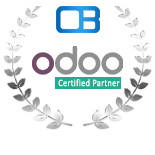CRM is important to know your customers better & it will help you in finding, nurturing and converting leads into closed deals faster. With CRM you can get all the information you need on one screen and track all customer interaction. Without a CRM system, it’s difficult to focus on the customers. CRM system creates a simple user interface for the collection of data that helps businesses recognize and communicate with customers in a scalable way.

PRODUCTS
- Revenue
- Marketing
- Operations
- Miscellaneous
- Manufacturing
- Human Resource
LOCATE US
 USA
USA
901 N Market Street, Office 121 Wilmington, Delaware, United States 19801
 INDIA
INDIA
Suite No. 306, Procapitus Business Park, D-247/4A, D Block, Sector 63, Noida, Uttar Pradesh 201301
© O2B Technologies - All Rights Reserved